
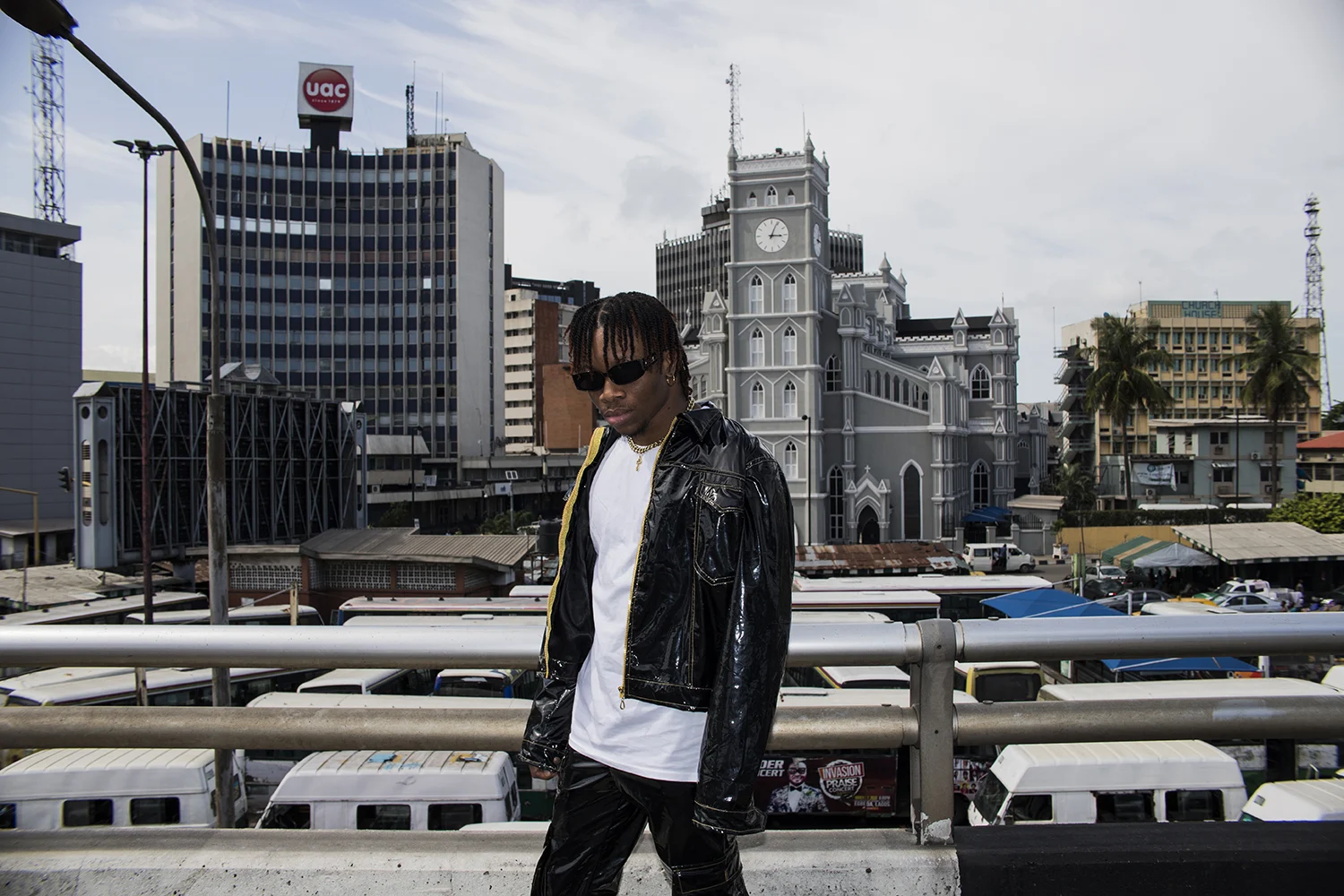
Since releasing his debut single in 2018 Lagos-based musician Oxlade has been steadily making his way up the charts in his native Nigeria and throughout Africa. Now, hot on the heels of the likes of Wizkid and Davido, he’s got his sights set on the rest of the world, and he knows exactly how to get there. Writer Vincent Desmond spends a day with the rising star in Lagos and finds out why, despite his growing success, Oxlade will never abandon the place that he calls home.
Photography by Stephen Tayo.
As my Uber pulls into Surulere, the maze of streets in Lagos that once housed Wizkid, one of Nigeria’s greatest artists, I can hear Away, the lead single from Oxlade’s debut EP, playing from a barbershop. I’d heard the same song just a few minutes before that, when it was played on the radio as they counted down through the top 10 on the weekly chart. That is how ubiquitous 23-year-old Oxlade has become in Lagos.
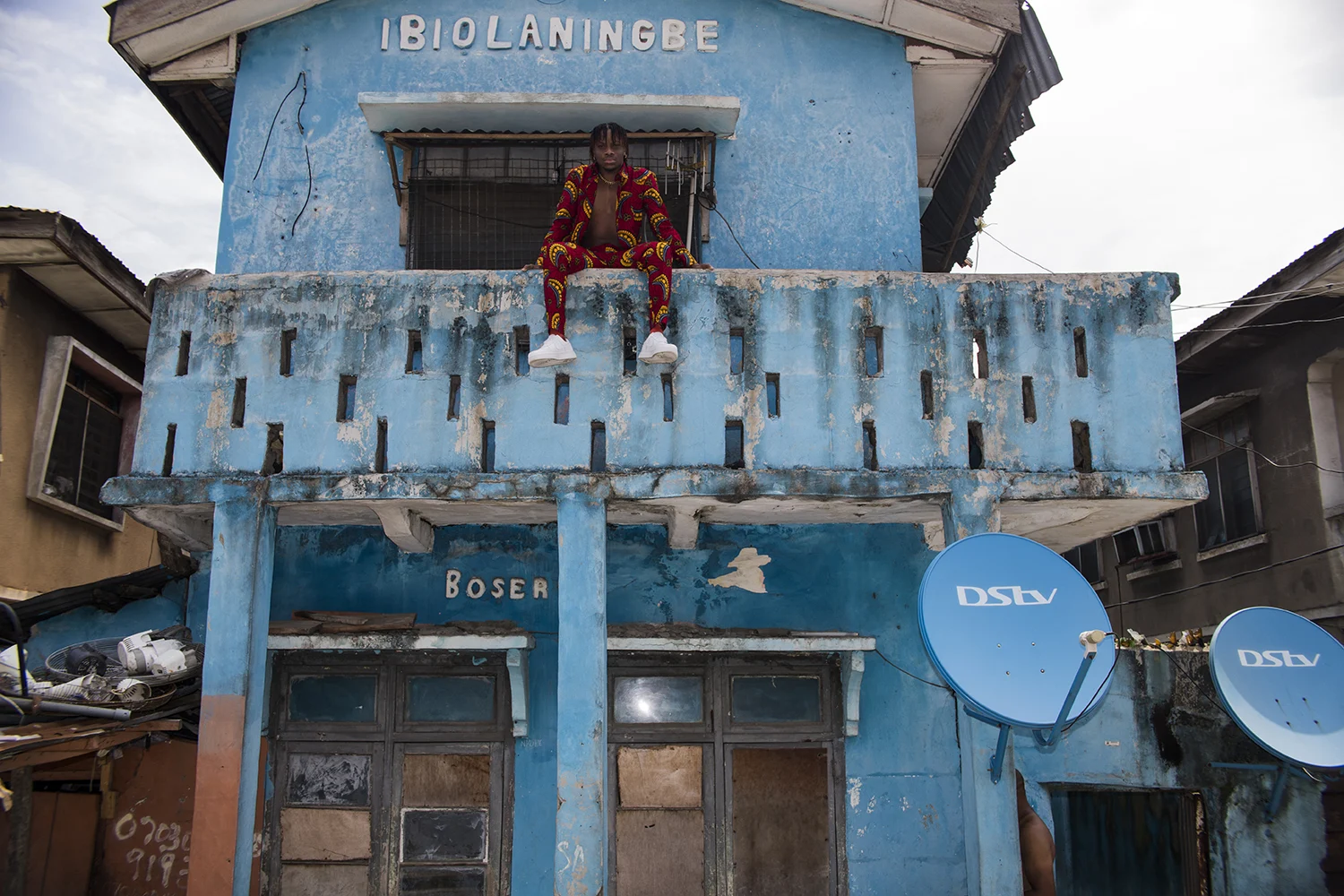
Moments later when I meet the singer in his hotel room, he is all cautious smiles. “I just dey wake,” he tells me, moving around the room surprisingly full of energy for someone who had had just a few hours of sleep. “I couldn’t sleep at home today, I just needed to think so I came here.” Here is a little nondescript hotel in the heart of Surulere, a few streets away from Oxlade’s house.
Oxlade’s government name is Ikuforiji Abdulrahman Olaitan but he’s quick to tell me that Oxlade– the name that is now garnering him so much attention – is actually one of his middle names. “I’m the first grandchild, so they bombarded me with names,” he says, laughing. “I was using so many wack names in secondary school, and I knew they were wack but I had to have a nickname. One day, I checked the list of my names and I saw ‘Oxlade’ and thought, ‘this one is really rare.’ And rarity is at the core of who I am as an artist.”

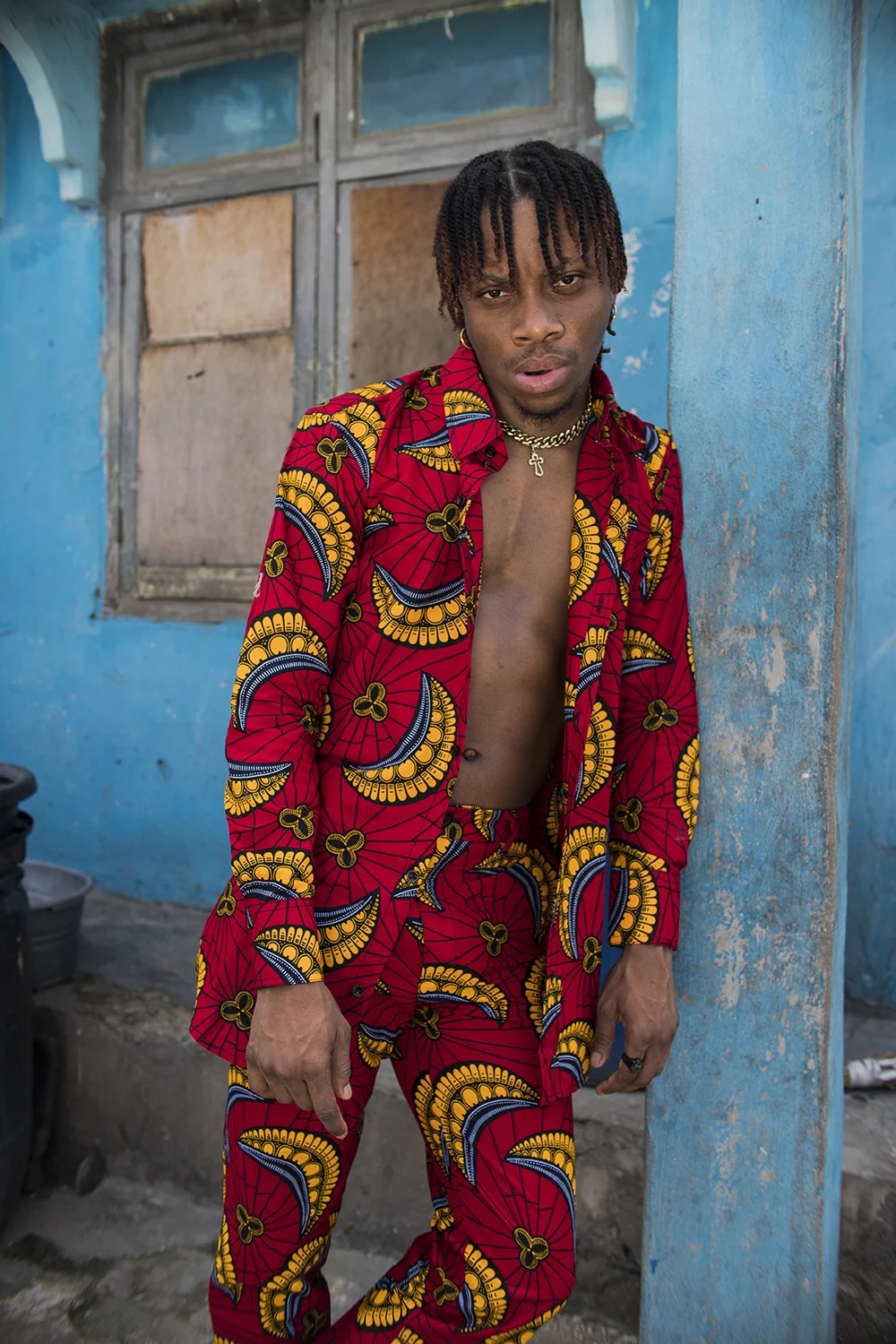
Oxlade has been singing since he was 10 but he didn’t gain mainstream attention until 2018. At the time he had dropped out of university and, due to a lack of financial support, had all but given up on achieving his musical dreams. To make ends meet he began working at a cyber cafe. Oxlade calls this period “the darkest of all times.” But the scales tipped in his favor after his friend, local rapper Blaqbones called him and asked him to feature on a song that he was working on called Mamiwota. Oxlade unenthusiastically agreed. Hours after the song was released, he found himself trending on Twitter.
“I had to go open a Twitter account in the cyber cafe just to see all these people asking ‘who is Oxlade?’ he says. “Even the artists I had been DMing on Instagram .” Oxlade took it as a sign and returned to music with a force. He started releasing new tracks and among them was Causing Trouble, a collaboration with DJ Tunez which went on to become a hit.
In 2019, he performed on stage at London’s O2 with Wizkid alongside fellow rising newcomer Fireboy DML as part of the lineup of Star Boy Fest. It’s a memory that gets him animated and you can still see the disbelief and joy spread across his face at the mention of performing with Wizkid. “That was when I knew no one could tell me shit anymore,” he says, laughing. “In 2018, I tweeted out of excitement while watching the show, saying, ‘see you guys at O2 2020.’ At that stage I didn’t have anything. I was just doing covers of people’s songs. The tweet is still there. After that performance, the whole of Surulere was proud. My whole family and everybody that didn't really understand the vision started to believe it. That was a defining moment for me.”
Despite being born in Mushin, a congested local government in Lagos that is known for its substandard drainage system and equally substandard housing, it’s Surulere, where I meet him, that Oxlade calls home and credits for influencing him as a person and musician. Looking at the streets of Surulere – many in dire need of repair where the houses are so close together you can hardly tell where one ends and the other begins – you’d be forgiven for not realizing that this small area of Lagos has been home to some of Nigeria’s greatest exports. From Nollywood icons like Desmond Elliot and Ramsey Noah to singers and artistes like Wizkid and Simi, Surulere has played both home and muse to many.
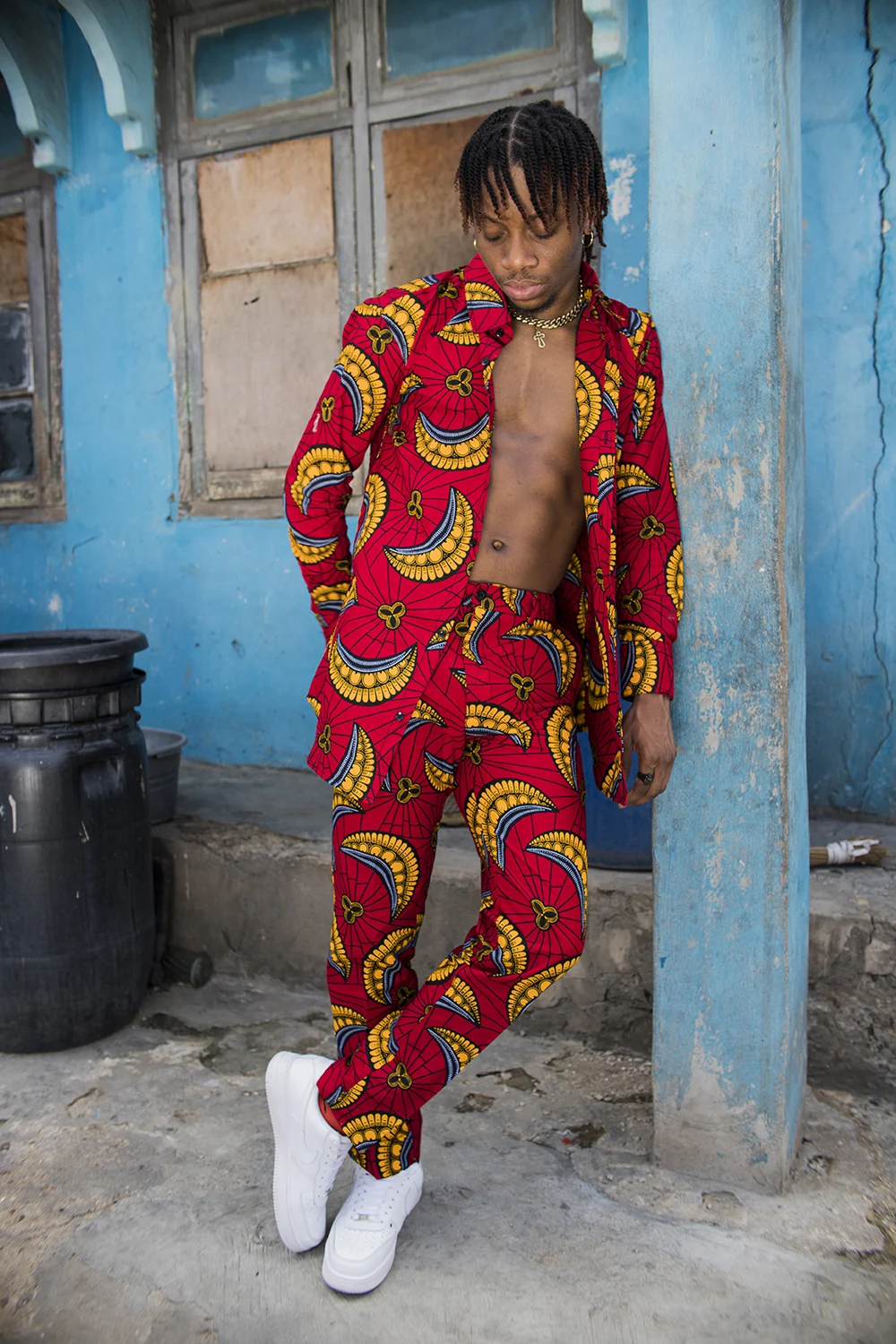
It’s not just about calling yourself an African artist, you have to body Africa
“I grew up in Mushin and I learned a lot about life there,” Oxlade says. “It’s in the top three slums in Africa. You know all these roads that don't have drainage? Those are the areas I've stayed. It shaped me in how to spend, how to think, how to survive in the jungle. But when I moved to Surulere, I saw another side of how to hustle as an artist. There are a lot of artists Surulere and there’s a very big example in Wizkid. Passing his mother’s house and remembering a star once lived here is enough ginger for you,” he says.
Despite growing industry acclaim Oxlade doesn’t like talking about his success. He tells me his story is “more of a motivational one” but he finds the idea of churning out samey motivational tidbits cringe-inducing so shies away from it when asked in interviews. But despite how he feels about being a go-to success story, that is what he is to many. There’s local pride in the streets of Mushin and Surulere that a boy who walked and hustled there is once again climbing the ladder to new heights. Oxlade is a reminder of the validity of big dreams for the hundreds of young people who live in those same streets. But it goes further than just Lagos. There is a level of national pride in watching a 23-year-old Gen-Z musician bend genres and sounds ranging from his own era to that of his grandmother’s. There is a breadth of Nigerian history in the music that he creates.
Oxlade was born into a family of academics. His father, his only living parent, was a lecturer at Lagos State University and their last name held significant weight in the academic community. Oxlade’s decision to pursue music wasn’t a welcome one. The singer doesn’t talk much about this conflict though. Instead, he focuses on his grandmother, who he calls his anchor, and two of his closest friends who housed him at varying points in his life after he ran away from home when it was made clear that his father would not support as long as he was determined to pursue music. These friends are still close to his life and career. One of them is Ojabi, his manager and producer, and the other is Naya, one of the biggest video directors in Nigeria at the moment. The singer purposefully keeps his circle small.
As we walk into Oxlade’s new hotel room, the conversation turns to life during lockdown. “It’s been filled with mixed feelings, man. A little bit of sweet and bitter,” Oxlade tells me. “I dropped my first project and, thanks to God, it is doing wonderfully well. The bitter part is that I can't flex to the maximum. I can’t perform. I can’t travel.”
Afrobeats is a movement. It’s an umbrella that covers every African artist spreading his music outside of the continent.

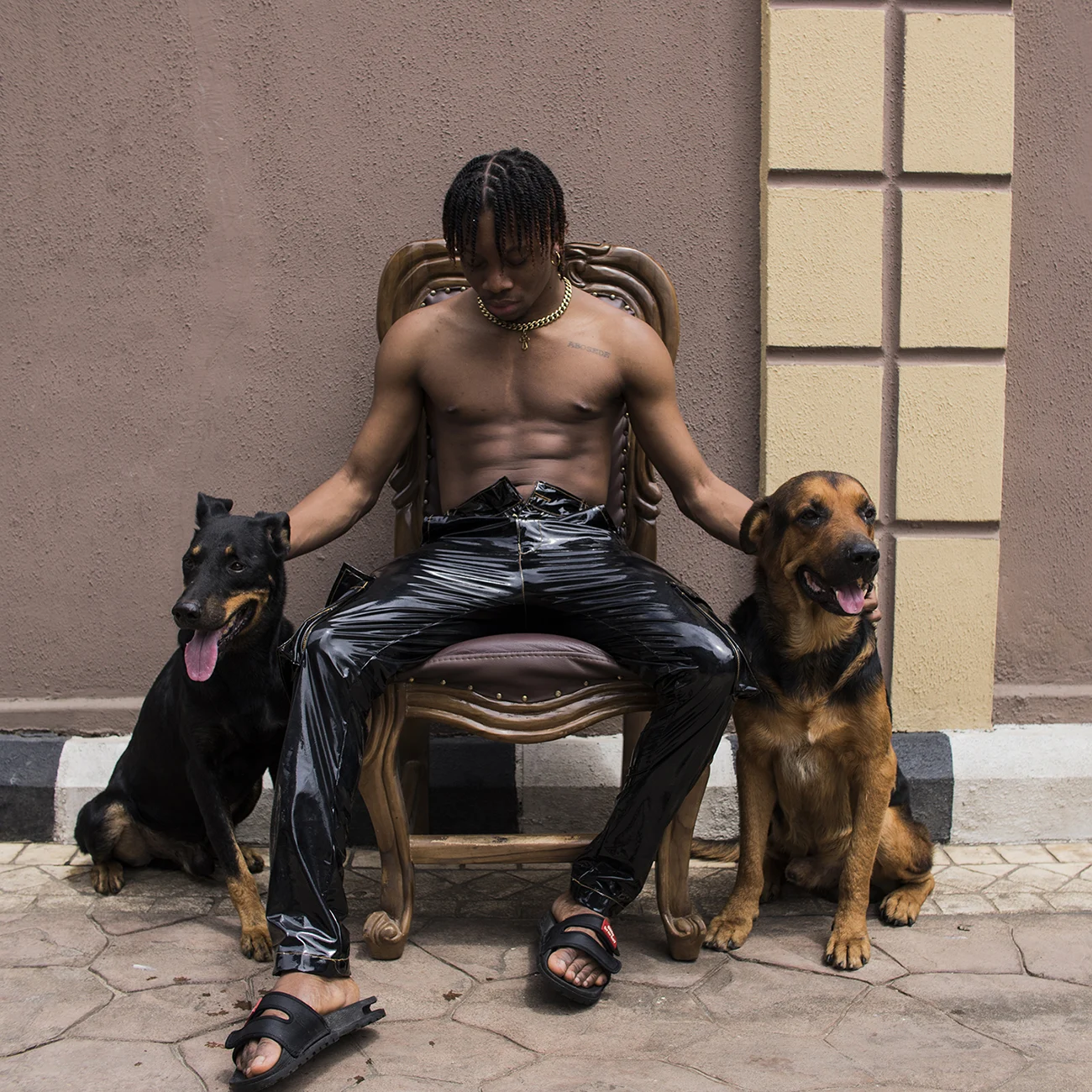
In March 2020, just as Lagos was locking down due to COVID-19, Oxlade released his debut project, OXYGENE. The six-track EP is filled with dance infused Afro-ballads where Oxlade proves how well he can shift between genres as he sings about love, heartbreak, and romance over club-ready tracks. They’re not just radio friendly though, throughout the EP the tracks bleed into each other in a cohesive way that shows that Oxlade isn’t just a hitmaker but also a storyteller. He sings about yearning on Away and is vulnerable on Weakness in a way that leaves him almost unrecognizable by the time party track Kokose starts playing, a masterclass in fusing and bending genres and sounds. The album earned over three million streams in its first week of release and pushed Oxlade even further into household name territory.
As we chat, our conversation moves from music to social media to fashion but one thing that remains consistent is how deliberate Oxlade is about everything he does. I watch him carefully go through his Instagram, through the hundreds of stories he is tagged in and pick the specific ones he reposts. When we talk about fashion, he tells me how conscious he is about picking the clothes and brands he wears. He stands up to emphasize this, gesturing to his sweatpants, which have OXYGENE spelled out in big letters across his left leg.
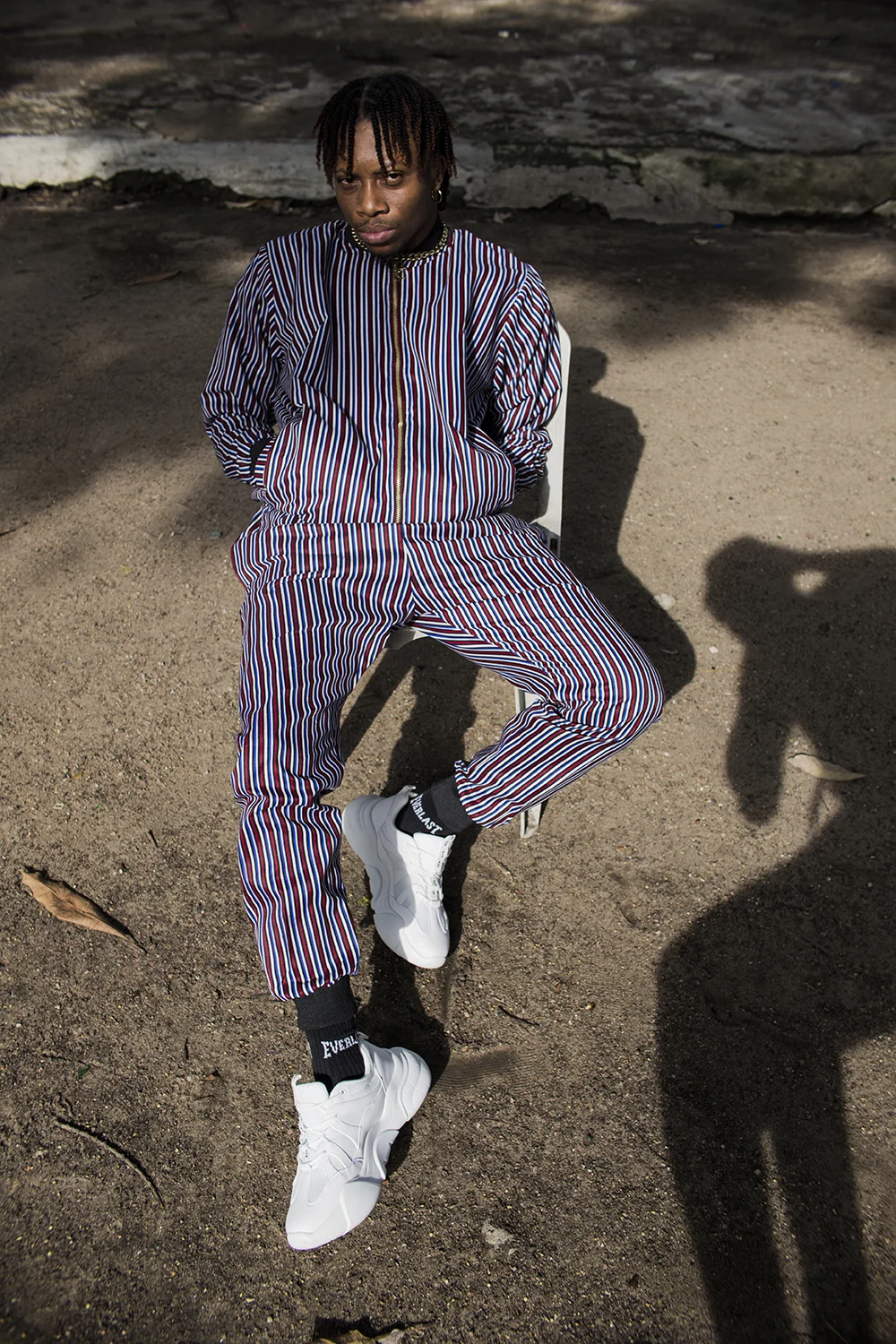
“Everything I’m wearing is made in Nigeria. Everything including the cap,” he says as he pauses to remove it to show me. “Everything I do is deliberate. I want to get to a stage where start rocking African fabrics and turn them into urban design. It’s not just about calling yourself an African artist, you have to body Africa.” As he talks, you can see how much the singer believes in local talent, perhaps because not too long ago he was just like them, hustling to get his break. He references other singers in Surulere and Lagos often, and talks more about local designers than he does big labels and he sees them not just as they are but as they could be.
“The OGs inspired us. The things they did are the things we learned from. Burna Boy doesn’t just call himself the African Giant. There’s no tour he’ll perform that he will not dance shaku shaku, or wear his native jacket or his Fela ice chain. These things are branding and they are details. That’s why when I wanted to feature on Slow Down with Skip Marley, I said ‘Oxlade from Africa.’”
“Are you Yoruba?” he asks me. “There’s something we call omo agba, old soul.” He pulls up a story on his phone of him singing to distinct ‘90s Highlife . “Growing up I was forced to listen to the OGs because I grew up with my grandma. Artists like Onyeka Owenu, Sunny Okposo, Pastor Chris Okotie (there was a time Chris Okotie, the famous pastor sang R&B), Sunny Ade, Shina Peters and Ebenezer Obed. Then there’s Wande Coal who is my biggest musical influence there’s Moelogo, there’s Tay Iwar, there’s Mali music, there’s Erykah Badu. That’s why there are different phases to Oxlade.”
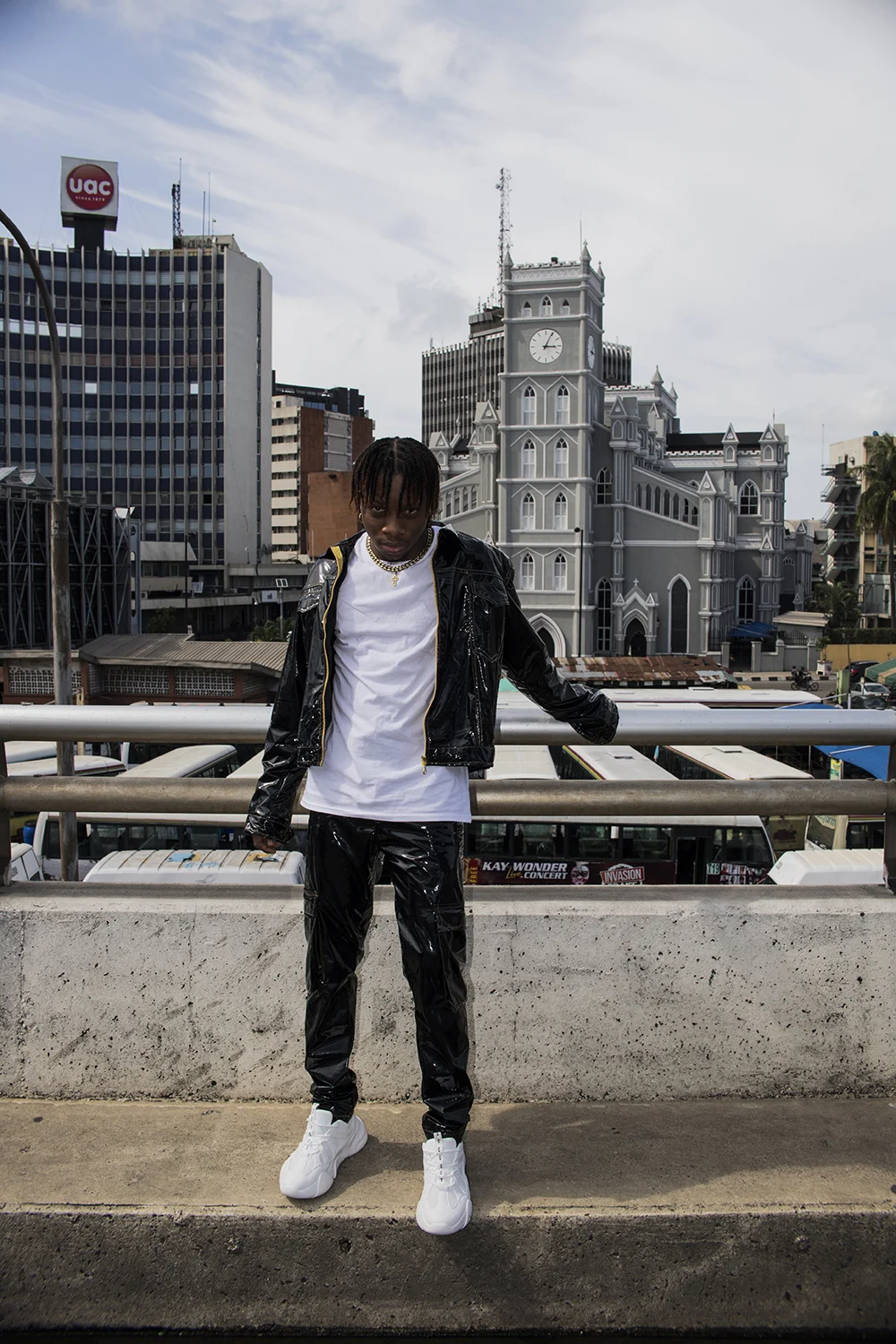
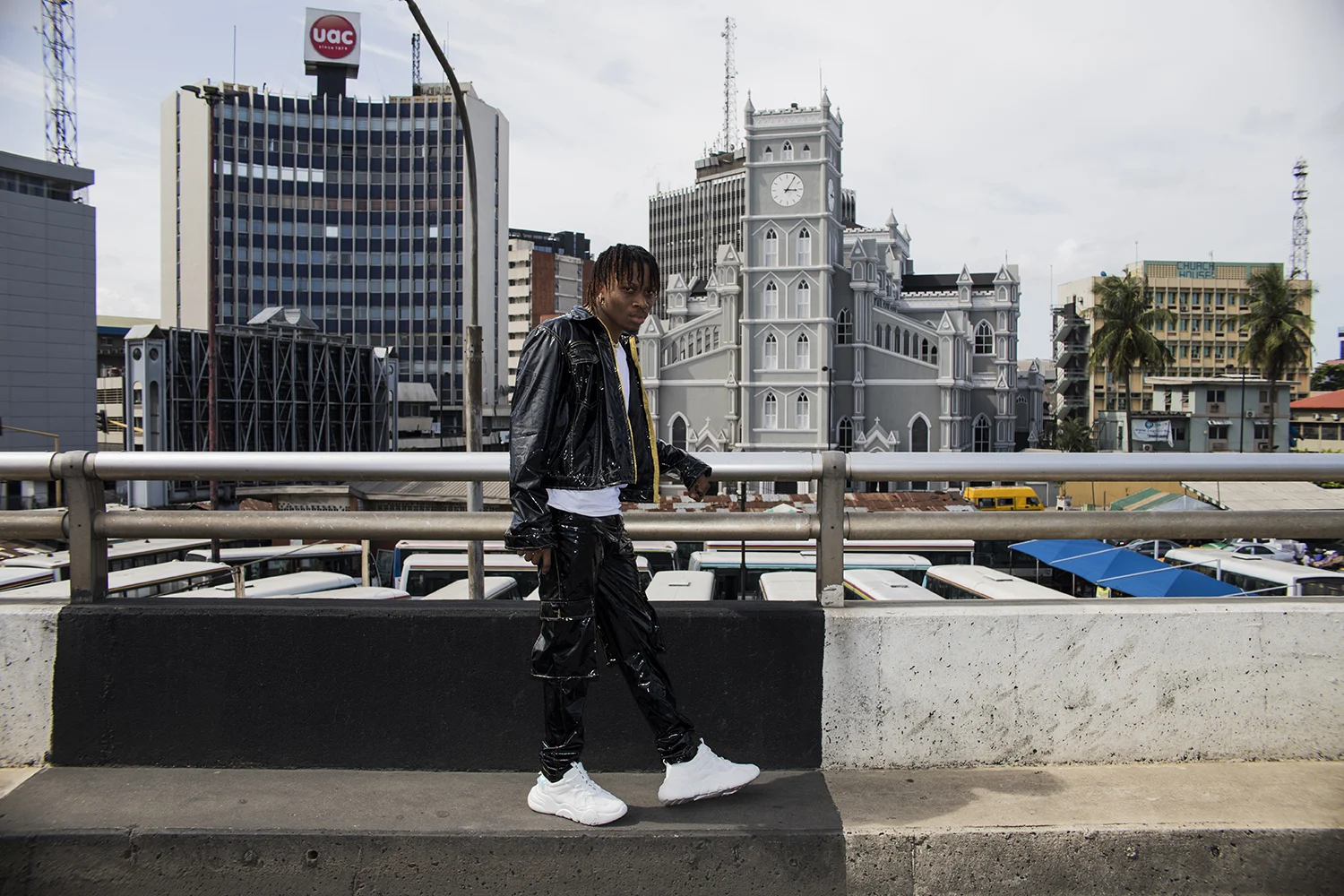
And it’s true, if you listen to his music you can hear all these influences. It’s for this reason that Oxlade describes himself as an Afro-fusion artist, his ability to meld different genres and go from beat to beat in a way that is uniquely Oxlade has helped him carve a niche and sound under the umbrella that is Afrobeats. But when I ask him if he considers Afrobeats a genre, he shakes his head.
“I don’t call Afrobeats a genre. I call it a way of life, It’s a movement. It’s an umbrella that covers every African artist spreading his music outside of the continent. The next five years will be bloody. I know 20 artists here that can body anybody from anywhere but they just haven't gotten the platform they need yet. So imagine when they do.” Oxlade is beaming as he tells me the big things he sees in Afrobeats future. He also has big plans for himself. He plans on being one of the biggest Afrobeats exports the country has seen. So how does he plan to get there?
“Strategy,” he says. “Strategic collaborations with the right people. Strategic songs. There are some songs I am currently promoting in Uganda and East African countries and some songs in Nigeria. Making the right friends, working smart. Then there’s your brand, what you are rocking.” Afrobeats has often been used as a way to fight for social justice so I ask Oxlade if the global Black Lives Matter movement has inspired him to be more political, and in reply, he smiles and states that his future music will speak for itself.
We walk out of the hotel and as we do a man repeatedly calls out to Oxlade, waving enthusiastically. Oxlade tells me he finds it hard to believe he is famous. In Lagos he can’t go outside without being recognized or stopped. The previous week, in the middle of lockdown, he had gone to the mall for his essential shopping and a fan kept calling out to him, just wanting him to say hi back to her. To the 23-year-old though, he is still a Mushin-Surulere boy with big plans making beautiful music and that is how he defines himself.
“I’m a romantic.’’ Oxlade tells me, “I’m a better listener than a singer and that shows in my songs. I want to be remembered as an artist that made his music on his own terms. Away is arguably the biggest song in the country right now and it doesn’t sound like any song from the past or present. That’s what I want out of my music, that’s how I want to be remembered.”

